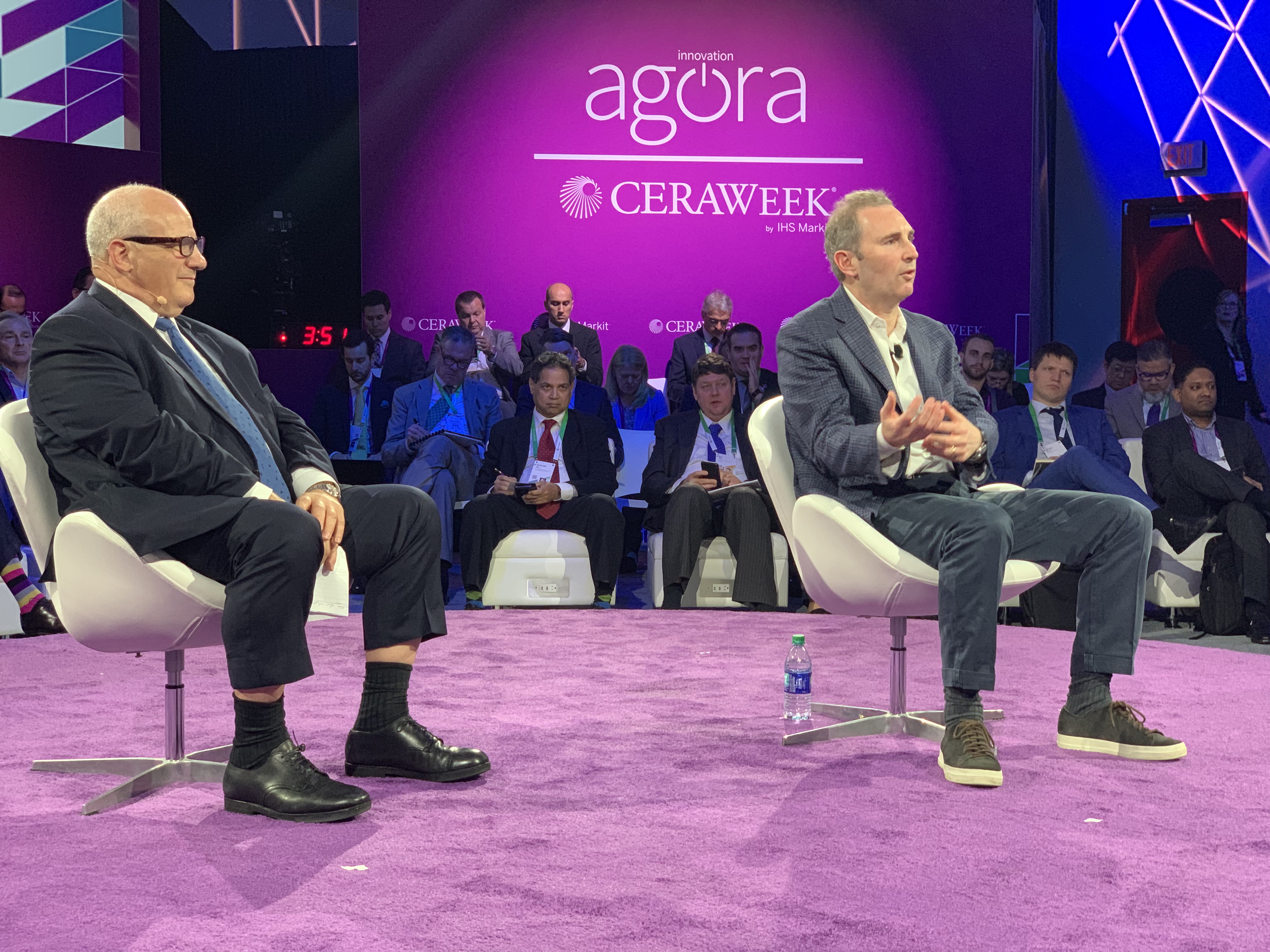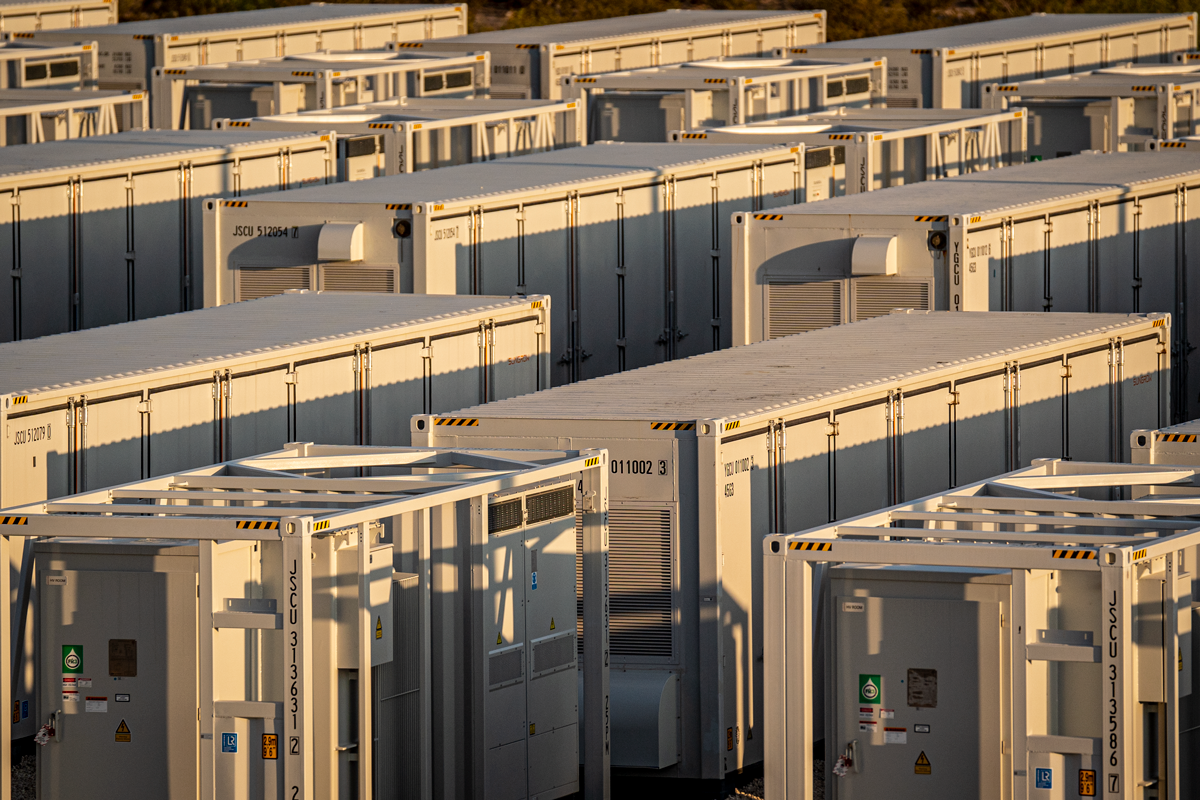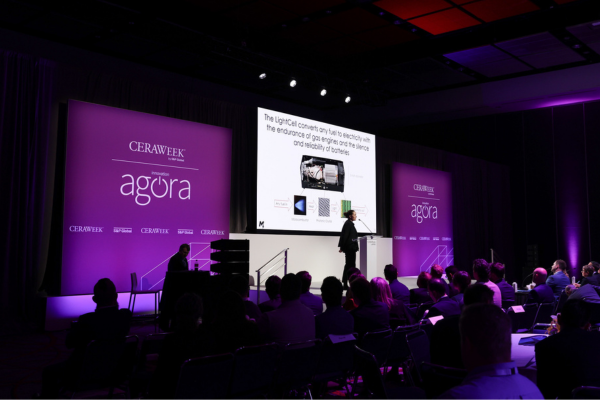Energy
HETI Members Drive Key Discussions at CERAWeek 2025
2/24/25
Every year more than 10,000 thought leaders, industry executives and policy experts gather at the largest convening of energy sector professionals, CERAWeek. The conference fuels the dialogue that shapes the new era of energy.
Taking place March 10-14 the 2025 program, Moving Ahead: Energy Strategies for a Complex World, will feature insightful discussion into policy and regulation, hydrogen and low-carbon fuels, supply chains, AI, climate and sustainability and more.
The sessions will feature dozens of HETI members speaking covering key transition topics, including:
Transition in Action: Energy giants shaping a sustainable future
March 10 | 12:30 – 1:00 pmSpeaker: Vijay Swarup, Senior Director, Climate Strategy & Technology, ExxonMobil
Industry leaders discuss how major energy companies balance climate goals, clean technology, and renewables with policy challenges and financial performance.
Is CCS Pivoting to Scale? Which industries and regions can drive it?
March 10 | 1:00 – 1:30 pmSpeaker: Chris Powers, Vice President, CCUS & Emerging, Chevron
Explore how industries and regions can drive the global scale-up of CCS by replicating key economic and policy conditions.
Unlocking the Hydrogen Value Chain: From production to market integration
March 10 | 1:30 – 2:00 pmSpeaker: Oleksiy Tatarenko, Senior Principal, Climate-Aligned Industries, Rocky Mountain Institute (RMI)
Explore how to scale hydrogen production, infrastructure, and market integration for sustainable adoption.
Which Technologies Are Ready for Gigaton Scale?
March 10, 2025 | 2:30 – 3:00 pmSpeakers: Ricky Sakai, Senior Vice President, Investment & Business Development, Mitsubishi Heavy Industries America
Examine the technologies beyond solar and wind that can achieve gigaton-scale emissions reductions.
Fuel Sources Competing to Meet Data Center Demand
March 10 | 3:30 – 4:10 pmSpeaker: Srimonto Ghosh, General Manager, Chevron
Assess the role of fossil fuels, renewables, and nuclear in powering the surge in data center electricity demand.
Financing the Future: Scaling clean energy through innovative investment strategies
March 11 | 12:30 – 1:10 pmSpeakers: Jim Gable, President of Chevron Technology Ventures & Vice President of Innovation, Chevron and Georgina Campbell Flatter, Greentown Labs, Chief Executive Officer
Discover investment strategies driving large-scale clean energy deployment and innovation.
ExxonMobil | Real-world Progress on Building a Low-carbon Business
11 March | 10:00 am - 10:30 am
Gain insight into ExxonMobil’s approach to developing a business that reduces emissions in hard-to-decarbonize sectors.
A Blue Transition: Go low to no carbon with blue hydrogen
March 11 | 2:00 – 2:30 pm Speaker: Kai Guo, Head of Market Development and Origination, Mitsubishi Heavy Industries Hydrogen Infrastructure
Learn how projects are advancing blue hydrogen through carbon capture, infrastructure, and cost optimization.
Technologies for Reducing Emissions in Oil & Gas Operations
March 11 | 2:30 – 3:00 p.m.Speakers: Ilaria Parrella, Emission Abatement Executive Director, Baker Hughes
Explore real-world strategies and technologies lowering carbon intensity in oil and gas.
Lessons from the Frontlines: Implementing strategies and projects in the energy transition
March 11 | 4:15 – 4:55 pmSpeakers: Richard Jackson, President, U.S. Onshore Resources and Carbon Management Operations, Oxy; Barry Engle, President, Low Carbon Solutions, ExxonMobil; and Gavin Rennick, President, New Energy, SLB
Uncover key insights from industrial decarbonization and CCUS projects shaping the energy transition.
Innovating with Purpose: Strengthening industrial-academic partnerships
March 11 | 8:30 – 9:00 amSpeakers: David Duckworth, Hydrogen Technology Portfolio Manager, ExxonMobil
See how collaboration between universities and industry accelerates impactful energy innovations.
How to Align Methane Management and International Regulations
March 11 | 9:30 – 10:00 am Speakers: Matt Kolesar, Chief Environmental Scientist, ExxonMobil
Understand how producers are adapting to evolving methane regulations and emissions monitoring.
Developing Workforce to Leverage AI
March 11 | 1:30 – 2:00 pmSpeaker: Jessica Van Single, Managing Director – Global Resources Industry Talent & Organization Lead, Accenture
Examine how AI is reshaping the energy workforce and driving new skill demands.
Technologies for Reducing Emissions in Oil & Gas Operations
March 11 | 2:30 pm - 3:00 pm (CST) Speakers: Ilaria Parrella, Emission Abatement Executive Director, Baker Hughes
Explore strategies for advancing clean energy while ensuring global energy reliability.
The Green Gold Rush: A multi-trillion dollar opportunity?
March 11 | 4:00 – 4:30 pmSpeakers: Bobby Tudor, Chairman, Houston Energy Transition Initiative and David Rabley, Global Energy Transition and Sustainability Lead, Accenture
Identify the biggest business opportunities in the transition to a low-carbon economy.
Balancing Energy Transition and Energy Security
March 12 | 2:25 – 3:05 pmSpeakers: Dan Holton, Senior Vice President, Hydrogen and Lithium, ExxonMobil
Explore strategies for advancing clean energy while ensuring global energy reliability.
ExxonMobil | Applying Technology to Maximize Value in the Permian Basin
12 March | 2:30 pm - 3:00 pm
Discover how ExxonMobil is using advanced technology to optimize production and reduce emissions.
Making Geothermal Happen: Success stories
March 12 | 3:30 – 4:00 pm Speaker: Ajit Menon, Vice President, Geothermal, Baker Hughes and Tim Latimer, Co-Founder & Chief Executive Officer, Fervo Energy
Learn how geothermal energy is scaling as a reliable and sustainable power source.
How Can Long-duration Energy Storage Contribute to Tripling Renewables?
March 13 | 9:30 – 10:10 am Speaker: Vijay Betanabhatla, Head of Power, SLB
Assess the role of energy storage in supporting large-scale renewable energy expansion.
Beyond Degrees: A call for rethinking climate metrics
March 13 | 10:00 – 10:30 amSpeaker: Sasha Mackler, Senior Vice President, Global Head of Strategic Policy, ExxonMobil
Challenge the focus on temperature targets and explore a broader framework for climate progress.
Seeking Net Zero in Energy-intensive Industries
March 13 | 2:30 – 3:00 pmSpeakers: Brian Payer, Senior Principal, Climate-Aligned Industries, Rocky Mountain Institute (RMI)
Evaluate the technologies and strategies driving emissions reductions in heavy industry.
Collaboration Spotlight: Building a resilient Gulf Coast energy and chemical sector
March 13 | 4:30 – 5:00 pm
Speakers: Jane Stricker, Senior Vice President Energy Transition, Executive Director of Houston Energy Transition Initiative(HETI), Greater Houston Partnership
Ramanan Krishnamoorti, Vice President, Energy and Innovation, University of Houston
Dhaval Shah, general Manager for Corporate Technology and Innovation, SABIC
Paul Kearns, Laboratory Director, Argonne National Laboratory
Explore the national security and economic opportunities that innovation and process integration create for the Gulf Coast region’s leadership in energy and chemicals manufacturing.
Visit us at CERAWeek to learn how Houston is leading the energy transition.
Read More


 The Houston Report
The Houston Report


















